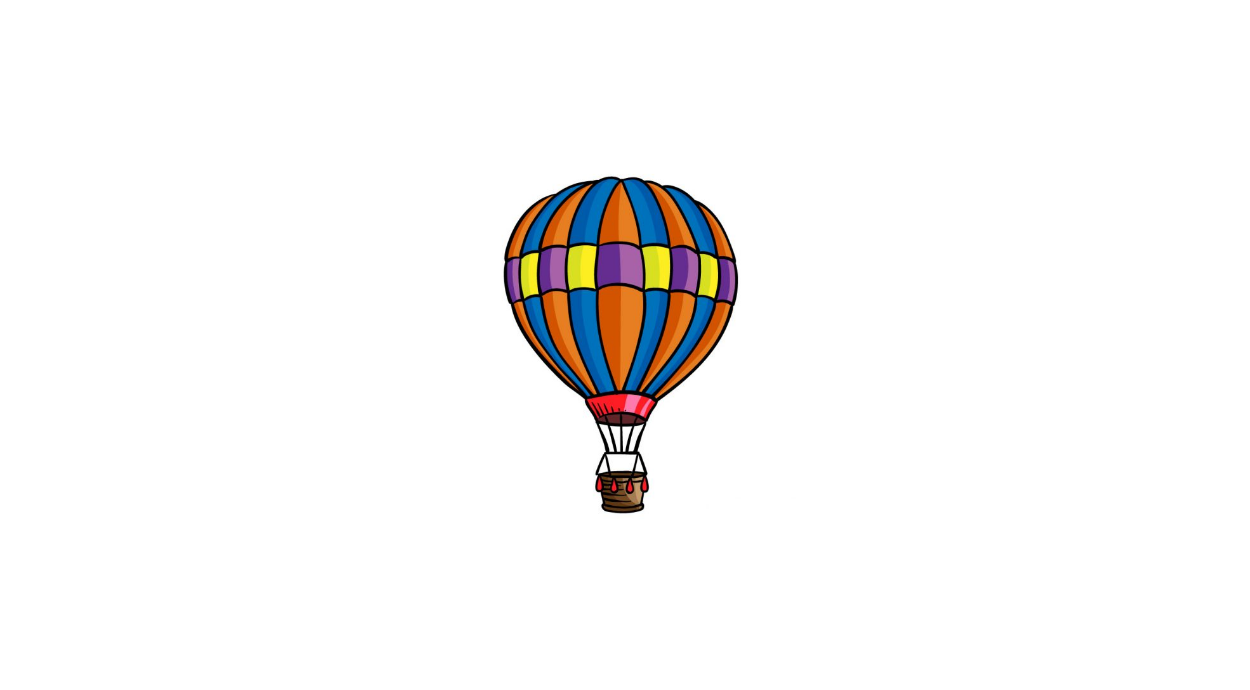Education
How to convert 70 kilograms to pounds?
This can be regarded as a very popular question among all the children who study in primary school. Such conversions are frequently observed in their examinations. Though these conversions are very simple, the small children might make silly mistakes while carrying out these conversions. So, here we will be discussing how to convert 70 kilograms to pounds. In the case of older children too, these conversions are frequently required in their physics and chemistry numericals. Apart from these academic uses, these conversions are also applicable in our everyday lives. For example, we might face different scenarios in our everyday lives where we might have to convert a quantity from kg to pounds and vice versa. These include situations like grocery shopping, planning a diet chart, calculation of BMI, calculation of dosage of medications, etc.
During such situations, if we don’t know how to carry out the conversion, then it can be regarded as extremely frustrating and embarrassing. Hence, everyone should know the procedure involved in these conversions. Here, we will be discussing the general procedure of converting a quantity from one scale to another. Thereafter, we will be carrying out the given conversion using the discussed procedure. Lastly, we will be looking at some of the vital points that should be kept in mind while carrying out these conversions. So, without further delay let’s get into our discussion of this informative topic.
General Conversion Procedure
In this section, we will be discussing the general procedure that needs to be followed while carrying out these conversions. This is applicable for almost all conversions including the conversion of 70 kilograms to pounds. So, without further delay, let’s take a look at this procedure in detail.
- Determination of the interrelationship between the given scales
This can be regarded as the first step that needs to be carried out in the case of all conversions. As we all know, there exists a unique relationship between any two given scales and if we are able to determine this relationship accurately, then we can carry out these conversions very easily. Thus, whenever we face such questions, we need to determine the given scales. After that, we have to find out the interrelationship between those two scales.
- Carrying out the conversion
This can be regarded as a very simple as well as easy step. In this step, we have to use the above mentioned interrelationship to carry out the given conversion. This step involves some simple mathematical calculations. Most of the time, we can arrive at the required answer by performing some basic multiplication or division. But at the same time, we have to keep in mind that the small children tend to make a lot of silly mistakes while carrying out these conversions. Such errors can considerably deviate them from the correct answer. In order to avoid such scenarios, they should always remain focused and attentive while carrying out these conversions. This will greatly help them in avoiding these mistakes to a great extent.
Conversion of 70 kilograms to pounds
In the previous section, we have discussed the general procedure that needs to be followed while carrying out these conversions. Here, we will be using the discussed procedure to perform the given conversion. So, without further delay, let’s see how we can convert 70 kg to lbs.
- As we have already mentioned, the first step that needs to be carried out here is the determination of the interrelationship between the two given scales. In this case, the given scales are kg and lbs. So, we have to determine the relationship between these two scales. Now, 1 kilogram is equivalent to 2.20462 pounds. In the case of adults, they can easily determine these interrelationships with the help of the internet. But in the case of the small children, this is not at all possible. Hence, it is highly recommended that they memorize the common interrelationships between different scales.
- In this step, we will be using the above mentioned relationship to carry out the given conversion. Now, as we have already mentioned, 1 kilogram is equivalent to 2.20462 pounds. So, in order to convert 70 kilograms into lbs, we have to multiply 70 by 2.20462. This will give us the value 154.3234 pounds. In other words, 70 kilograms is equivalent to 154.3234 pounds. Thus, this can be regarded as the required answer to the given question.
Important points to be kept in mind
In this section, we will be discussing some vital points that should be kept in mind while carrying out these conversions including the conversion of 70 kilograms to pounds. So, without further delay let’s see what these points are.
- The teachers should always try to break the entire conversion procedure into simple steps. Thereafter, they should explain each step to the children in detail. This will greatly help the children in developing a clear concept regarding these conversions.
- It is highly recommended that the small children should try to memorize the common interrelationships between different scales. This can be regarded as very important because unlike the adults they will not be able to determine these relationships from the internet. First of all, they have very limited access to the internet. Secondly, they are not allowed to take help from any external sources during examinations. So, memorizing these interrelationships can be regarded as an excellent option for them.
- The small children should remain attentive while carrying out these conversions. In addition to that, they should practice these conversions on a regular basis.
For more blogs: Techwires
Conclusion
Thus, from our discussion of the topic, it can be concluded that if we convert 70 kilograms to pounds, we will get 154.3234 pounds. Hence, it is appropriate to say that this conversion is indeed very simple as well as easy. Here, we have discussed the general procedure that needs to be followed while carrying out these conversions. Thereafter, we have carried out the given conversion using the discussed procedure. Lastly, we have looked at some of the important points that should be kept in mind while carrying out these conversions. Hence, this discussion can be regarded as extremely beneficial for all the students.
Education
How to Draw A Hot Air Balloon Easily

How to Draw A Hot Air Balloon. There are many different vehicles that you can transport through the air to get you where you need to go.
Also, check our coloring pages for kids.
Most focus on speed and efficiency, but ballooning slows it down and enjoys the ride.
They’re a pretty sight in the sky, too, and you can capture one by learning to draw a hot air balloon.
With the help of this step-by-step guide to drawing a hot air balloon, you will effortlessly draw them like a hot air balloon floating in the air!
How to Draw A Hot Air Balloon
Step 1
This first step of our guide to drawing a hot air balloon starts with using a pencil to create a rough outline for drawing the hot air balloon.
First, use the pencil to draw a rounded shape for the balloon section of the hot air balloon.
Next, you can draw a long vertical rectangular shape with two horizontal lines for the balloon basket.
This connects directly to the piston. Once you’ve drawn these pencil lines, you can draw over them with the pencil.
For now, you can draw on the left side of the balloon.
Then you can use curved lines coming down from the top of the balloon to form the shapes you see in our reference image. These form the different segments of the balloon.
Step 2
Continue extending the balloon segments downward for this part of your balloon design.
To do this, draw a curved rectangular shape under the shapes you drew in Step 1.
Then draw another curved rectangle, but this time it’s longer. Draw a series of these shapes inside the balloon, closely examining our sample image to see how it should look!
Step 3
The next two steps of drawing a hot air balloon guide focus on repeating what you did in the previous two steps.
For this part, create the top segments of the balloon-like the ones you drew in step 1. Just draw a mirrored version of the rectangular shapes in the reference image.
Step 4
As mentioned in the previous step, in this part, you will see what you did in step 2 when drawing your hot air balloon.
As you can see in the image, draw mirrored versions of the shapes from this step.
Their curvature creates a thick, inward-curving shape in the center of the balloon.
Step 5
A hot air balloon wouldn’t be very effective without a basket to sit in, so in this step of our guide to drawing a hot air balloon, we’ll add one.
With the pen, start by drawing a curved rectangular shape at the bottom of the balloon. Then use some lines going down from this shape to connect the ropes to it.
Step 6
Older balloons often had sandbags hanging from the basket to weigh them down a bit, and we’ll draw those for this phase of drawing your balloon.
Draw small teardrop shapes from the hot air balloon’s basket to do this. That’s all you need in the next step for the finishing touches.
Step 7
This step in our how-to-draw-a-hot air balloon guide is about adding final details before adding color to the drawing.
First, you can complete the hot air balloon by adding details to the cart below.
Once drawn, most of your hot air balloon is done! Now you can take your eraser and erase the pencil lines from the first step.
Before we continue, feel free to add more small details, and you can even add some details!
You could draw a background to show what kind of landscape this hot air balloon is flying over.
Step 8
After drawing your hot air balloon, you can bring it to life with pretty colors!
Hot air balloons are known for having bright and vibrant colors that make them shine in the sky, so you have some great ways to color them!
We showed you how to colorize it using our reference image, but you should use whatever colors you love for this image.
Your Hot Air Balloon Drawing is Finished!
Education
Creating Engaging And Relevant Content As A Literacy Influencer

If you are a Literacy Influencer, then you are aware of the difficulties of creating content that is both engaging and pertinent to your audience. Whether you are attempting to promote literacy in your local community or reach a global audience, it is essential to create content that resonates with your followers. In this blog post, we will investigate how to create engaging and relevant content as a Literacy Influencer. We will discuss the significance of developing a content strategy, communicating with your audience, and creating engaging and relevant content. By the end of this post, you will have a better comprehension of how to create content that will keep your followers returning for more. John Jezzini
Developing A Content Strategy
Creating content is an essential part of any website or blog, but it’s not always easy to know where to start. That’s where a content strategy comes in. A content strategy helps you understand your target audience and the topics that they are interested in. It also allows you to keyword research and optimize your content for increased visibility and reach.
When developing your content, be sure to keep in mind SEO best practices. Make sure to use keywords relevant to the topic of discussion, as well as relevant tags and attributes when creating your posts. Use visuals such as videos and photos to engage readers and boost engagement levels even further. Repurpose existing content in different formats so that it has a fresh look, while still keeping its message intact. Finally, analyze analytics data from past posts to see what works well and what can be improved upon – then make changes accordingly!
By following these simple steps, you can develop a successful content strategy that will help you reach more people with your message.
Communicating With Your Audience
Communicating with your audience is essential for any writer or content creator. If you want your work to be successful, you need to know what your readers want and need. By understanding their needs and interests, you can create content that is both engaging and informative.
In today’s world, literacy is becoming more and more important. As technology advances, so does our ability to understand complex concepts. However, not all readers are comfortable with reading about or discussing these topics in depth. To reach these readers, it’s important to find ways to illustrate concepts in a way that is both accessible and interesting. By using storytelling techniques, you can engage your readers on an emotional level while teaching them something new at the same time.
Don’t be afraid to ask questions of your followers either! This allows you to gather feedback and improve your work as needed. Additionally, interactive multimedia elements can provide even more information in a way that is easy for your audience to understand. By taking the time to communicate with your audience on a personal level, you can create content that is both informative and engaging – perfect for any reader!
Creating Engaging And Relevant Content
Influencers are a huge part of modern marketing, and the USA is no exception. Whether you’re a small business or an influencer yourself, it’s important to create engaging and relevant content that will keep your followers interested. By following the tips in this blog post, you’ll be on your way to creating quality content that will reach and influence your target audience.
When creating content for influencers, it’s important to stay on top of the latest trends. By identifying trending topics and writing about them in a modern and unique way, you’ll be able to attract new followers. Plus, by writing about topics that matter to your audience, you’ll be able to create content that is truly resonant.
To make your content more impactful, it’s important to follow some formatting guidelines. For example, using keywords throughout your article will help to rank higher in search engines and bring in more visitors from across the web. Additionally, making sure your images are high quality and sized correctly can also improve visibility for your content. Finally, by using social media platforms like Twitter and LinkedIn to promote your content, you can reach even more people who are interested in what you have to say.
In order for your content to be successful in reaching influencers and converting leads into customers, it’s essential to establish connections with key industry leaders. These connections can help you gain recognition as an authority on certain topics or industries – something that will put you ahead of the competition when it comes not only to SEO but also to brand awareness!
Overall, these tips provide everything needed for creating engaging and relevant digital content that will connect with readers on an emotional level. With proper planning and execution, there’s nothing stopping you from achieving success as an influencer or small business owner!
Also Read: Multilingualism And Literacy – Enhancing Language Acquisition And Cultural Understanding
Practical Ways For Literacy Influencers To Reach Their Audience
As a literacy influencer, it’s important to stay on top of the latest trends and technologies in the literacy world. By doing so, you can help to reach more people and drive more engagement. Below, we’ve outlined some practical ways that you can use to increase your reach as an influencer.
First and foremost, it’s important to understand the purpose of your influencer account. Are you primarily trying to drive traffic to your website or blog? Are you looking to promote one specific product or service? Once you know the purpose of your account, it’s much easier to create content that is relevant and helpful.
Current trends in literacy also play a big role when creating content for an influencer account. If you’re looking for ideas, take a look at posts that are related to literacy and see what resonates with you. For example, if you’re interested in writing materials for children, be sure to include content about that topic in your posts. Additionally, be sure to research current trends so that you’re not promoting outdated information (or information that no longer exists).
It’s also important to engage with other literacy influencers across different industries. Not only will this help spread the word about your work (and make connections with other like-minded individuals), but it will also give you insights into how best to approach certain issues or challenges. For example, if writing materials for children are something that interests you, be sure to read articles written by parenting bloggers before publishing anything yourself. This way, you’ll have a better understanding of what works well and what doesn’t when it comes to engaging parents with Literacy material!
Finally – and this is probably one of the most important points – analyze data from past posts before publishing future content pieces. This way, you can identify areas where readers are responding positively or negatively and make adjustments as needed! Repurposing previously published content is also a great way to increase visibility for your work across different social media platforms (Twitter included). By incorporating visual elements into your posts (e.g., infographics), you can really capture reader attention and keep them engaged throughout all of your content pieces!
To Conclude
Creating content that is both engaging and relevant as a Literacy Influencer can be a challenging task. However, by following the tips outlined in this blog post, you can create content that resonates with your audience and drives engagement. Developing a content strategy, communicating with your audience, staying abreast of trends, and engaging with other influencers across different industries – all of these will help you reach more readers and have a greater impact as an influencer. So why not give it a try? Get started today and see what kind of results you can achieve!
Education
6 Actionable Tips for Achieving Customer Excellence

In the era of rivalry, you must provide effective, innovative, and trendy services to your consumers to beat your competitors in the global industry. You are well aware that your business success relies on your customers’ engagement. If you fail to satisfy your clients, they move toward your competitors. So, don’t take any minute risk that affects your customers’ engagement and loyalty.
Great customer experience is one of the best ways to leverage your business. For the business, satisfied customers seem to like the ladder to success. You might get hazardous consequences if any of the footsteps is affected. So, to save your business reputation, you must keep your customers satisfied and engaged by providing them with desired and effective services. So, in this piece of writing, we will describe the 6 actionable tips for achieving customer excellence. So, stay with us here and keep scrolling below to reveal the notion.
Top 6 Tips to Achieving Customer Excellence
Customer excellence is doing great for your patrons to boost their engagement and experience. You know that frustrated customers mean greater success for your opponent and competitors. So, you have to burn all the ways or tracks that lead you toward your customers’ dissatisfaction. Therefore, we will deliver the top 6 tips for achieving customer excellence in this post. So, don’t go anywhere and keep reading below to reveal how you boost your customer excellence.
1. Be clear on what your customer needs
The first and leading concept is to recognize your customers’ demands. Everyone has different choices, so you must consider all customers’ ages and find out their needs. For this reason, you have to conduct market research and polish your services based on their outcomes. You can also utilize the customers’ needs to refine the proposition findings, ultimately assisting you in reducing the existing challenges.
Therefore, we recommend you explore the services from customer experience Dubai. It will surely assist you in refining the valuable results based on the customer’s needs. Also, it will provide an effective customer map that supports you in understanding your patrons and manipulating the customers’ concerns and issues.
2. Add value
Once you know the customers’ requirements, it will assist you in adding value to customer service. It will provide various ideas and notions that effectively retain your customers with your services. For instance, if your managers, employees, and salesperson directly contact your customers and greet them with a dynamic sound, they ultimately attract to recognize your service. This way, you will explain your services and persuade them in a friendly manner.
3. Communicate effectively
You must be clear on your business values and communicate with your customers effectively, and it will assist you in looping everyone into your organization. Moreover, you have to ensure the reliability of your business so that they build trust in your services and are ready to grab your offers immediately. In this way, you will ultimately get plenty of potential customers.
4. Empower your customer-facing staff
Your business successes rely on your employees’ productivity and your clients’ engagement. For this reason, you must first improve your employee’s ability and aptitude to deal with customers and accomplish the job task. In this way, you must train them properly and implement the new tactics and policies that boost customer excellence. It assists them how in managing the time to deliver customer excellence rather than reassuring them to rush on to the next call.
5. Use customer feedback
Never ignore the customers’ feedback; it will support you in modifying your ideas and way of marketing. You have to create cards and a chatbot to get customer feedback. When you consider the customer feedback, you will realize at which point your business exists in the global market. Because of this, you will manipulate all your business’s internal and external tasks using this feedback.
6. Measure differently
To analyze customer loyalty, you must measure customer excellence. In this way, you will find out your business infrastructure’s metrics and access detailed turnover data. So, you have to explore the services of customer experience that analyze all your business metrics and bestow you with an effective journey map that boosts the constant improvement plan to boost customer excellence and loyalty.
Bottom Line
If you want to leverage your business, the tips mentioned above will surely assist you. So, don’t ignore the worth of your customers in the success of your business. Your customers’ satisfaction, engagement, excellence, and loyalty rely on your effective and rapid services. So, you have to prove the valuable training to your clients that ultimately leads to business success. So, explore the reliable customer experience services and grab their offers now to implement the innovative and trendy tactics that lead to attracting a massive audience towards your services.
-

 Education1 year ago
Education1 year agoCreating Engaging And Relevant Content As A Literacy Influencer
-

 SEO2 years ago
SEO2 years agoWhat Are the Differences Between WP Rocket, RocketCDN and Cloudflare
-

 Mobile Phones1 year ago
Mobile Phones1 year agoKnow About the New Upcoming Mobile Phones
-

 Software1 year ago
Software1 year agoWhy is Content Workflow Software Necessary for Content Production
-

 Technology2 years ago
Technology2 years agoHow to Write a Blog Post in 3 Easy Steps with AI
-

 Apple2 years ago
Apple2 years agoHow to back up your iPhone or iPad in 2021 – 7 Easy Steps
-

 Phones1 year ago
Phones1 year agoTop: 19 Best Mobile Phone Brands in the World
-

 Gaming1 year ago
Gaming1 year agoCheck Out The List Of Best CSGO Players 2021













